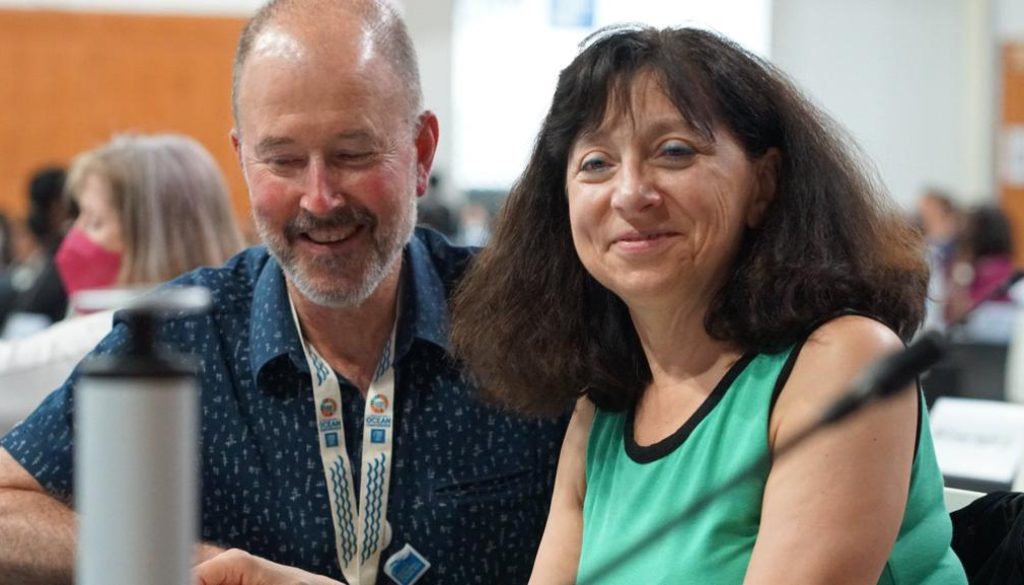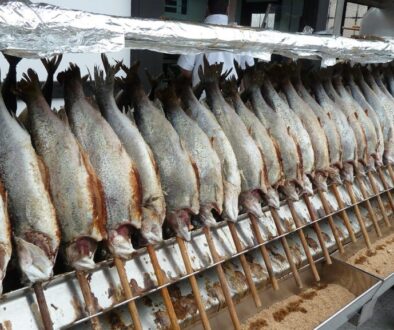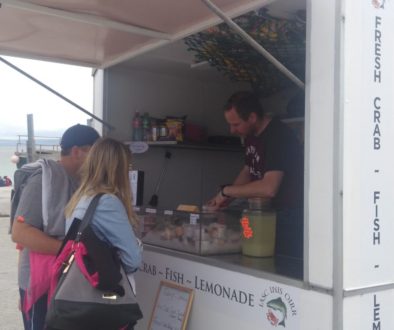The Low Impact Fishers of Europe (LIFE) responds to a recent report on subsidized trawling in the Mediterranean.
This article was commissioned by Fishing News, and appeared in Fishing News (https://fishingnews.co.uk/) on August 4 2022.
Producing food from the sea comes at a cost. In Europe, as in the rest of the world, the men and women who dedicate their lives to fishing pursue one of the most dangerous professions in the world. Daily, they put their lives on the line to put food on the table for the rest of us.
With fuel costs going up at about the same rate as temperatures, reaching an all-time high for the commercial fishing fleet across Europe, any further cost increase, by the removal of the current fuel subsidy for instance would undoubtedly spell the end for the majority of operators, big and small. It is already the case that most fishing trips make little profit for owners or crew after operating costs are accounted for and it would take the smallest of economic pushes to finally send them over the edge and into bankruptcy.
Not only are their lives at risk, but as the cost of living crisis becomes more acute, fishing communities’ livelihoods are getting dangerously close to the edge.
The Low Impact Fishers of Europe Platform [LIFE] represents the interests of smaller scale, low impact fishermen in Europe and has long called for a differentiated approach to the management of this sector of the fleet. This call has been given extra impetus with the recent publication of a report [ https://medreact.org/2022/06/21/a-new-study-exposes-the-true-costs-of-trawling/ ][1] highlighting the hidden costs, both environmental and economic, of larger scale mobile gear operations in the western Mediterranean.
Landing a few kilos of fresh fish daily means that smaller scale fishing activities must operate on very tight margins and benefit directly from the intrinsic value of their high-quality fresh fish “catch of the day”. In short, they must be price makers not price takers. By contrast, larger scale activities, spending several days at sea and catching several tonnes per day, are able to operate on lower margins, and can afford to take the price the market offers them. Smaller-scale and larger scale activities operate on two very different business models, with two very different rationales, facing two very different kinds of economic challenges. Yet the current system of fuel subsidies discriminates unfairly against smaller operators.
For both, fuel costs have become an Achilles heel. However, in many cases smaller-scale operations do not qualify for either fuel subsidies or the emergency post aid currently on offer to the fishing sector. This is because they use petrol outboard engines, and/ or because of the way their businesses are registered, or because they do not belong to Producer Organisations.
The report states at the outset: “Bottom trawling activities in the western Mediterranean are economically viable only because of governmental financial transfers and the lack of internalisation of their negative externalities, climate costs, biodiversity costs, hidden labour costs and overfishing costs among others entail that bottom trawling sector is currently uneconomic”.
LIFE considers that there is an increasingly urgent need to transition away from fishing methods that have such reportedly grave environmental and economic impacts. Whilst we recognize that the larger scale fleets employ 45% of the workforce and are responsible for 80% of the catch, we are concerned that the smaller scale sector, that provides over 50% of catching related employment and is over 70% of the fleet by number, will suffer further harm in light of any knee jerk reaction to the report by administrators.
LIFE has made clear that the implementation of the Common Fisheries Policy (CFP) has been anything but fair to our members interests across Europe. This discrimination includes access to resources increasingly restricted [access to quotas], fishing rights increasingly concentrated in fewer, and wealthier hands, a lack of protection for fishing areas, a lack of support for enterprise or association development, massive subsidies for industrial fishing [as the report shows] and market rules that favour industrial operations.
Without seeking to inflame the bottom trawling controversy further, surely it makes simple common sense that support, including subsidies, should be targeted at those fishing sectors and methods that have the least environmental impacts and generate the greatest social and economic benefits to the coastal communities of the Mediterranean, and elsewhere rather than propping up apparently unsustainable catching methods?
The challenge for Mediterranean managers will be just how they can move away from more damaging fishing activities whilst ensuring the continuity of food supplies and fishing related jobs. LIFE has always been clear that a management approach based on ‘right gear, right place, right time’ would be a good first step in terms of overall management.
The Report regurgitates the well-known criticisms of larger scale bottom trawling but importantly, states: “The study comes at a critical time as the European Union looks to embed a sustainable future for the ocean into its new Green Deal. With severe pressures affecting the ecological balance of the Mediterranean – overfishing, pollution and climate change are all having serious impacts – it has never been more important for leaders and decision-makers to recognise that healthy marine ecosystems are fundamental to its resilience, and to act accordingly”.
The argument that larger scale fisheries somehow have a ‘get out of jail free’ card on the basis that they are food producers can no longer be sustained in light of the recognition that food production comes at a cost in both environmental and socio-economic terms. It also seems clear that the EU is taking an ever more aggressive approach towards this aspect and is likely to take note of the reports call: “With the release of this report we’re calling for an urgent and radical shift to low-impact fisheries. Whether you look at it from an economic or an environmental point of view, the true costs of trawling are too high to bear. We must act now: we cannot afford to delay any further the recovery of the Mediterranean Sea.”
Fishing is under pressure as never before, both politically and financially. Under Europe’s Green Deal, offshore energy targets for 2050, targets for conserved areas, targets for decarbonisation, and increasing support for aquaculture production are squeezing fishing’s traditional dominance in having relatively unrestricted access to European seas.
The authorities have a massive challenge to square the circles outlined in the report. LIFE simply suggests that those operators who have a proven track record in low impact fisheries allied with the provision of significant social and economic benefits to coastal communities should be finally recognized and rewarded rather than stigmatized by tarring all fishermen and fisheries with the same brush. Provisions for achieving this exist within the 2014 CFP within Article 17, which rules that states must use a transparent and objective system to allocate fishing opportunities, applying criteria of an environmental, social and economic nature.
This would favour those who fish more sustainably over those who fish most, if applied in the spirit of the law. Instead, states have chosen to prioritise catch history over sustainability. This must change.
In Europe, only 3 out of every 10 fish consumed come from European fishing areas. The Mediterranean provides only 10% of European catches, but with nearly 50% of the EU fishing fleet. Europe’s Green Deal and Blue Economy strategy envision a radical change in the way seafood – or Blue Food as it is now termed – is produced. The fishing sector must adapt to these new realities or perish.
[1] Exposing the Hidden Costs of Trawling in the Western Mediterranean by Fundació ENT and MedReAct.



